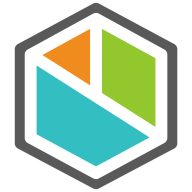

Informatica IDMC and Bizagi compete in the software and technology industries, focusing respectively on data management and process automation. IDMC seems to have the upper hand with broader data management features and comprehensive integration capabilities, whereas Bizagi distinguishes itself in process modeling and automation.
Features: IDMC offers seamless integration capabilities, enhanced data quality, and a flexible architecture supporting multiple MDM styles. It includes valuable features such as IDQ integration, data cleansing, and match-and-merge functionality. Bizagi excels in easy process modeling, flexible task-based workflows, and strong BPMN compatibility, allowing users to model and automate processes quickly, and providing intuitive interfaces and simulation capabilities.
Room for Improvement: IDMC could benefit from improvements in user interface design, data stewardship capabilities, and visualization challenges, with users seeking better error-reporting frameworks. Bizagi may enhance its automation features, integration with third-party applications, and performance in handling large processes, while making its functionalities more intuitive for users.
Ease of Deployment and Customer Service: IDMC provides versatile cloud deployment options with flexibility in hybrid and private environments, though on-premises setups can be complex. It has generally satisfactory customer support, though experiences may vary. Bizagi is recognized for straightforward on-premises deployment and ease of use, with efficient customer service noted for its timeliness and effectiveness, but could benefit from deeper technical support.
Pricing and ROI: IDMC is positioned as a premium solution, with high costs reflecting its extensive capabilities in data integration, despite noted complexities in licensing. It offers substantial ROI through data management efficiency. Bizagi offers a cost-effective alternative, particularly with its free modeler version, catering to SMEs and presenting scalable pricing that meets varying enterprise needs, delivering satisfactory ROI in process efficiency.
The toolset is very intuitive, so we didn’t need to contact their support much.
We cannot expect major customer support.
Due to the tool's maturity limitations, solutions are not always simple and often require workarounds.
There is no direct scalability option.
If I rate scalability from one to ten, I would probably give it a six.
As a SaaS platform, IDMC is quite scalable and provides complete flexibility.
Stability is crucial because IDMC holds business-critical data, and it needs to be available all the time for business users.
For more mature environments, the integration to live systems is lacking, which affects its applicability.
Reporting capabilities can be improved more, and community support should be increased.
The tool needs to mature in terms of category-specific attributes or dynamic attributes.
It was less expensive than some of the other tools.
IDMC is often described as the 'Ferrari of Master Data Solutions,' implying that while expensive, it is business-critical and, therefore, justified.
It is open source.
The user interface is very good, making it easy for business people to understand.
The platform's ability to pull in data from other platforms without the need for an additional integration tool enhances its appeal.


Bizagi’s industry-leading low-code process automation platform connects people, applications, robots, and information. As the most business-friendly and flexible solution on the market, Bizagi enables true collaboration between business and IT, delivering faster adoption and success. Fuelled by a community of 1 million users, Bizagi powers over 1,000 organizations worldwide including Adidas, BAE Systems, and Old Mutual. For more information visit www.bizagi.com
Informatica Intelligent Data Management Cloud (IDMC) is a robust platform used by banks, financial institutions, and health sector organizations for data management, governance, and compliance.
IDMC provides comprehensive tools for data discovery, profiling, masking, and transformation. It supports Salesforce integration, real-time data streaming, and scalable data management solutions. Health organizations manage national product catalogs while financial entities focus on data protection and regulatory compliance. Its intuitive interface, flexible features, and robust tools make it valuable across sectors, though enhancements in data integration and human workflow are being sought.
What are the most important features?
What benefits and ROI should be considered?
Banks and financial institutions use IDMC for data masking, transformation, and compliance, while health sector organizations leverage it for national product catalogs. Industry applications focus on automating business processes, centralizing data, and managing data catalogs to meet regulatory demands and ensure data protection.
We monitor all Business Process Management (BPM) reviews to prevent fraudulent reviews and keep review quality high. We do not post reviews by company employees or direct competitors. We validate each review for authenticity via cross-reference with LinkedIn, and personal follow-up with the reviewer when necessary.